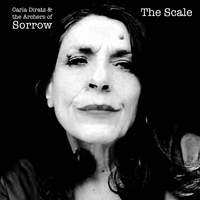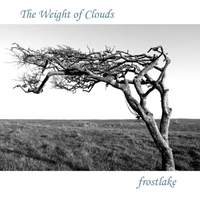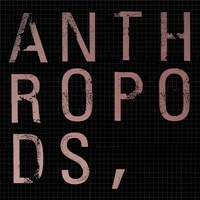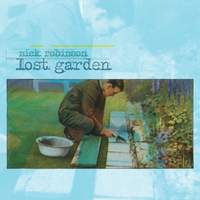Interview,
Martin Archer on the history of Discus Music

Founded in 1994 by Martin Archer and Mick Beck, Discus Music has released music from artists exploring free jazz, electronic-rock music, and otherwise uncategorisable music - just as varied as the founders' own musical interests. Boasting some of the bigger names in improvised music - namely Keith and Julie Tippett, Cecil Taylor, and Tony Oxley just to name a few - Discus has quite the catalogue when it comes to more explorative sounds. I sat down with Martin Archer to chat about his own background in playing improvised music, the impetus for starting Discus Music, and his philosophy for the label going forward.
You’ve been running Discus Music for the past 30 years. What was your impetus for getting into the recording business?
Control – there's nothing as sad as knowing someone has slaved over making a record which then goes out of print. I sussed out early on that I was more interested in making records than playing gigs, so I needed to ensure that I kept control over my own work. There were some good role models in the late 1970s – principally Incus and Ogun, but it was also punk and the ‘take control’/DIY ethos. The walls were down, I didn't want anyone telling me what records I could and couldn't make, or how many. So I started to make my own.
There seems to be a strong jazz/improv scene in the north, especially in Leeds and Manchester at the moment. Has there always been a strong scene in Sheffield, who were the main players and is it associated with any particular venues?
Truth is, it has always bumped along, usually run by a handful of enthusiast musicians and supported by a small audience. Sometimes funded – more often not – sometimes collaborative across those towns, sometimes people unaware of each other and just doing their own thing. You can't stop people. To be honest, I don't chase gigs anymore – I don't really have the time nor the inclination. If there are some gigs going, then let the young players do them – I've had my turn on stage. If someone wants me to play somewhere, I'm easy to find!

Please tell us a little bit about your own music career.
I’m self-taught, and played in a school rock band playing Velvets, Roxy, Bowie, Dylan, then started my own jazz rock bands – I discovered Soft Machine, Faust, Henry Cow, AACM and free improv and started doing my own version. First album was with Bass Tone Trap, an Ornette Coleman (Prime Time era)-inspired punk-jazz pell-mell, then Hornweb Sax Quartet which gigged all over the place for 10 years in the 1980s when there was a bigger network of paying jazz gigs in the UK. I did a few more albums with that group, then took a complete break from that when I moved into electronics and retreated into the studio for a few years, followed by a gradual re-emergence via my Discus releases which more and more combined avantgarde with free jazz, electronics, and then back toward songs and leftfield rock music.
It looks like the diversity of your roster has increased as the years have gone by, and you include rock, songform, and electronic music in the catalogue. What goes into your reasoning for agreeing to release an album?
As soon as you start putting out records other than ones by yourself, you have a responsibility to those people to make a success of the release, and for many years I didn't want that responsibility. Then, as the circle of people I worked with grew, especially with a younger generation of jazz musicians, I started to get more comfortable with putting out records by some people I played with. And then – when I wanted to take the plunge and go with a bigger distributor like Proper – I knew I'd have to bite the bullet and widen the net a bit. It's ended up being good for the label, I hope. In terms of diversity, the range of music I release on Discus makes no commercial sense at all, because folks don't know what to expect when they listen to a new release. But it does make sense when looked at in the context of my own musical interests and activities.
I'm personally active in all the music areas in your question, so it follows that if I like it and think it is saying something new, I'll release a record in any of those genres – why not? For my personal releases, if I have an idea for a jazz ensemble I'll record it, I continue to work with new music on my regular rock/electronics groups Inclusion Principle, Das Rad and Orchestra of the Upper Atmosphere, and central to my music – as well as covering all those genres – are the records with Julie Tippetts, who is my closest collaborator. So it's natural that other Discus releases should be just as diverse, not just musically but also in terms of the age of the musicians and to make sure that women composers and players are well represented. At my age, you need to set a good example.
You’ve had some quite glitzy names (in improv terms at least) in the catalogue - Derek Bailey, Cecil Taylor, Tony Oxley, Julie and Keith Tippett. How did these come about?
True, but to be clear, these big names (except for Julie T) are not what the label is all about. Discus Music is first about my own music, and then about the younger and less experienced musicians who are featured on the label. It's lovely to have those higher profile releases though, and it's all come about through the label's reputation. Keith of course came along after he saw how I was working with Julie. Tony came in after I approached him on a whim to reissue February Papers, which was always one of my favourite records, then Tony brought Cecil in. The old Derek Bailey record was Mick Beck's project, who played a tour with him. But I'm way happier when a less known artist sells well to the point where they (fingers crossed!) actually break even.

Has the arrival of the digital and streaming age, not to mention social media, helped the way you do business? For example, is social media helping bring in new listeners and artists?
Digital releases are great, and I'm a big fan of Bandcamp. A lot of younger listeners and some older ones don't want a CD, but in this music niche they do want to own the music securely, so Bandcamp is great for that – and it increased Discus' audience by around 25% when I started using it. 75% of the business is still CD though. I think CD/DL is a great combination for pleasing everyone.
Streaming is a necessary evil, I look on it as being nothing more than free advertising – splitting the income each month across the releases is hardly worth the time it takes to run the spreadsheet. So, streaming is basically irrelevant to me and I make zero effort to promote there. I'm ambivalent about social media too, although it is fun. Targeting specialist groups with posts and reviews looks like cheap advertising, but it's worrying how few people seem to look at some of those pages. And then when you post a new release or a review you get loads of "likes" from people who still haven't actually bought the record. God knows what they're thinking when they click "like", maybe it makes them feel good to give me a little pat on the head. Social media is too much of a time eater for me really, though I like it for music recommendations – which I invariably buy. Food and cats too, of course.
Do you have any particular favourite recordings in the catalogue, and why are they special to you?
Yes - the newest three releases, always!
The improv scene in the 60s, 70s, and 80s seemed to be quite political, usually towards the left of the spectrum. Do politics remain important to contemporary music, or have things moved on?
The notion of "moving on" from politics is crazy, you can't do that. The Establishment has no culture of its own, and fundamentally it hates artists and people who like art. Art offers the prospect of both personal and social improvement, and that is the exact opposite of what the Establishment wants. They want everyone to sit like dummies in front of their telly and consume crap. But opposition to that isn’t just the preserve of leftfield musicians; anyone who is involved in any creative activity – playing music, starting a band, running a club, making a piece of theatre, writing a blog, painting, learning a craft, teaching people to sing and dance, in fact the full spectrum of creative activities – is a kick in the balls to the cultureless scum who place themselves above us. And human creativity is ultimately unstoppable.
Martin recommends these recent Discus releases...
"It's a super strutting bad-ass proggy, jazz, power chanteuse must hear." - feedback from a Discus Music customer.
Available Format: CD
An album of beautiful electronica-tinged songs from songsmith and multi instrumentalist Jan Todd - "Enchanted and bewitching - like they invented a whole world and kept it going right through the album - I love this!" - Dereck Higgins, Tuesday video blog
Available Format: CD
Double CD containing the final live and recorded work of genius pianist Keith Tippett in two piano partnership with Matthew Bourne - "Overall, this is a momentous release, not only as far as British Jazz is concerned, but as a brilliant document of Improvised music, which makes perfect sense, can be listened to repeatedly and is extremely aesthetically pleasing, something that happens very rarely within this genre. Essential listening!" - Adam Baruch
Available Format: 2 CDs
"I won't go through all the tracks here, except to say you also get abstract pieces, some lazy and spacey jazz and other concoctions that don't fit in any pigeon hole that I could put them in, and then there's the manic grunge jazz stoner of Starvation Hound, that then turns spacey and twists in all manner of directions to end the album with a crazed guitar freak-out! LAIK TORS pulls no punches, it just lays it on, and some!" - Alan Freeman, AUDION
Available Format: CD
New release from the ex Led Bib leader and composer, with his Vienna based ensemble. "While Holub's compositional voice is always evident there is an improvisatory edge in each track that is especially acute in the use of shifting tones, whether from individual instruments or combinations within the band. The result is a richly eclectic set of enjoyable and unclassifiable music celebrating the joy of collectivity." - Tony Benjamin, JAZZWISE
Available Format: CD
This solo guitar release comes with some very high recommendations!
Steve Hackett (Genesis): "Interesting with some excellent playing and innovative atmosphere. I wish you luck with the project."
Adrian Belew (King Crimson): "I liked it very much. All the best in this crazy world we now have..."
Available Format: CD
33 minutes of avant-pop perfection, essential listening for folks wanting to hear the pop envelope being pushed. Zappa fans will love this beautifully crafted release which has picked up a whole load of great reviews: “Wild, wacky, wonderful, and so, so, out there. The utterly uncategorizable and strangely coiffed Mzylkypop isn’t just one of the more idiosyncratic releases in the Discus catalogue, it’s one of the most richly rewarding pieces of warpmusic you’re likely to hear this year.” – Downtown Music Gallery NYC
Available Format: CD









